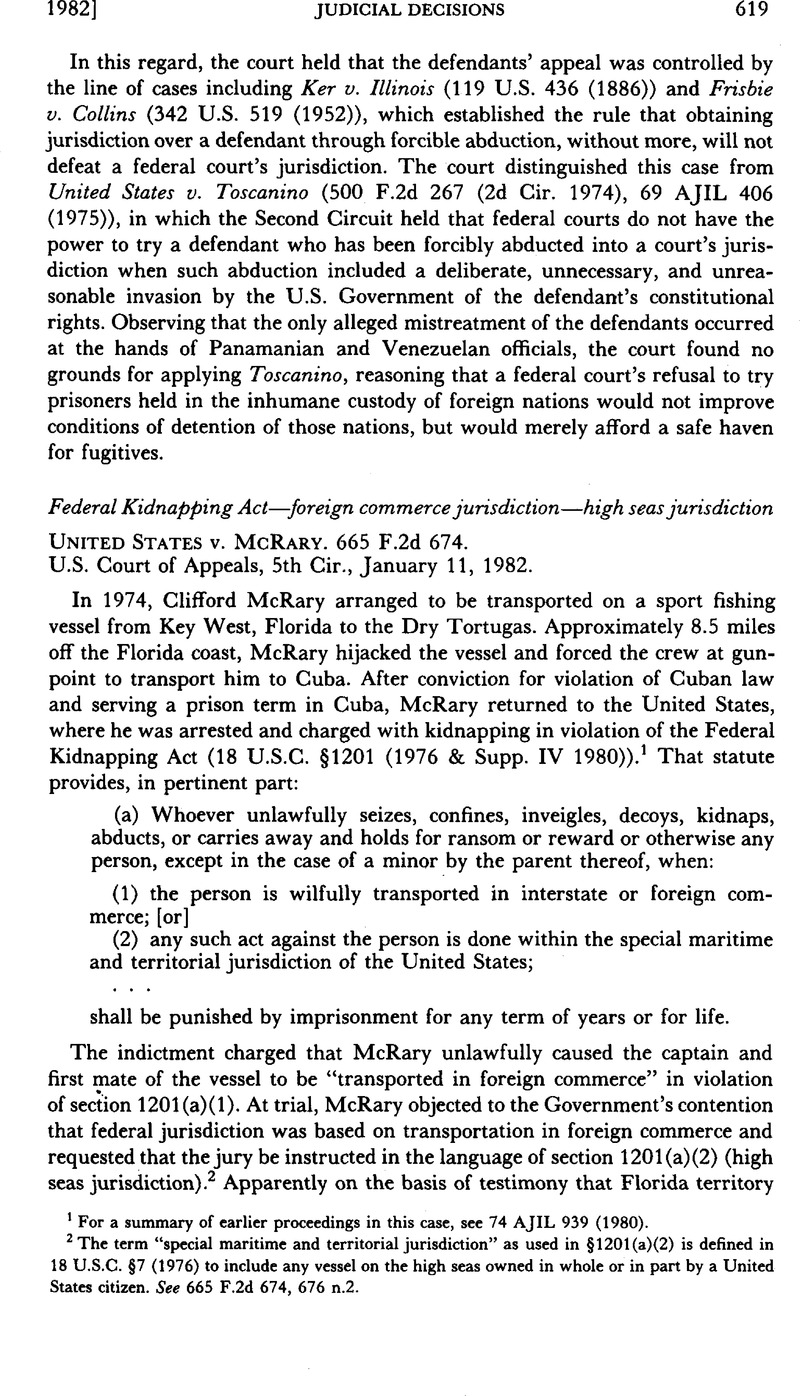No CrossRef data available.
Article contents
United States v. Mcrary
Published online by Cambridge University Press: 27 February 2017
Abstract

- Type
- Judicial Decisions
- Information
- Copyright
- Copyright © American Society of International Law 1982
References
1 For a summary of earlier proceedings in this case, see 74 AJIL 939 (1980).
2 The term “special maritime and territorial jurisdiction” as used in §1201 (a)(2) is defined in 18 U.S.C. §7 (1976) to include any vessel on the high seas owned in whole or in part by a United States citizen. See 665 F.2d 674, 676 n.2.
3 See, e.g., United States v. Louisiana, 363 U.S. 1 (1960); 4 Whiteman, M., Digest of International Law 1–14 (1965)Google Scholar.
4 A further ground for the court’s reversal was its finding that neither the failure to instruct the jury on high seas jurisdiction nor the denial to allege such jurisdiction in the indictment was harmless error.
5 The court also relied on United States v. Mclnnis, 601 F.2d 1319 (5th Cir. 1979), in which the Fifth Circuit held that foreign commerce jurisdiction is not applicable when kidnappers contrive a plan in the United States to entice their victim into a foreign country so that he may be abducted there. As the court noted, however, McInnis did not present the precise issue confronted in McRary, where a kidnapping had already taken place before the victim entered the foreign state.
6 665 F.2d at 678.
7 See note 1 supra.
8 665 F.2d at 678 (citing Geneva Convention on the High Seas, Apr. 29, 1958, 450 UNTS 82, TIAS No. 5200, 13 UST 2312, Arts. 2, 5, 6; United States v. Rodgers, 150 U.S. 249 (1893)).
9 665 F.2d at 677.
10 In this regard, the court observed: “We agree with the government that under the evidence presented at the trial a jury could have found high seas jurisdiction.” Id. at 680 n.10. It is unclear from the decision why McRary himself “submitted a request to instruct the jury in the language of 18 U.S.C. §1201 (a)(2),” id. at 676, when the Government’s failure to obtain such an instruction apparently saved McRary from being convicted under that section.




